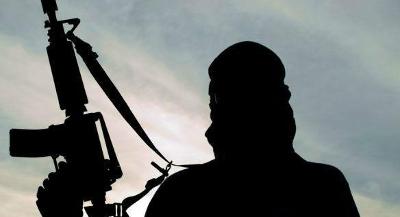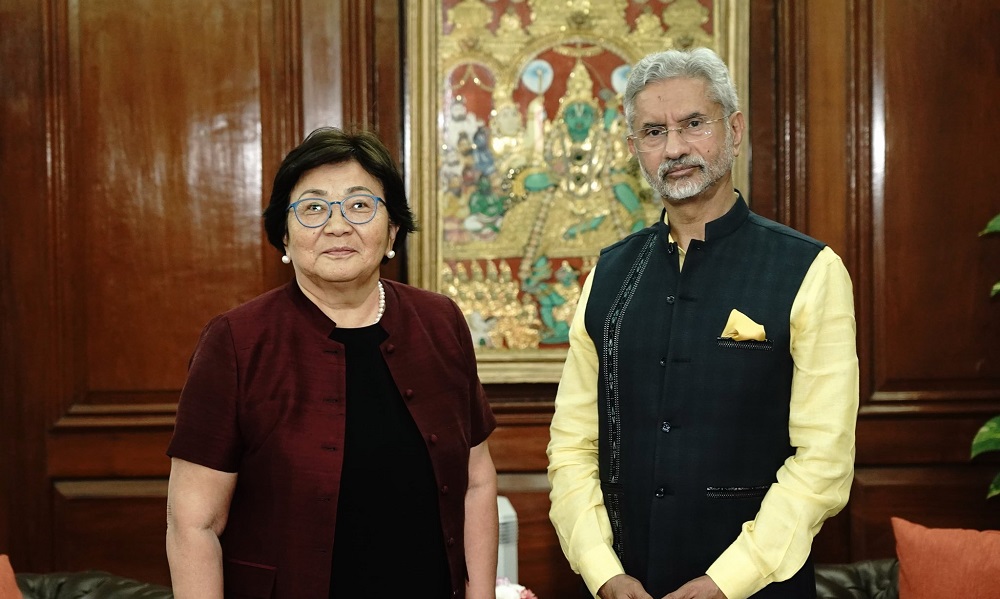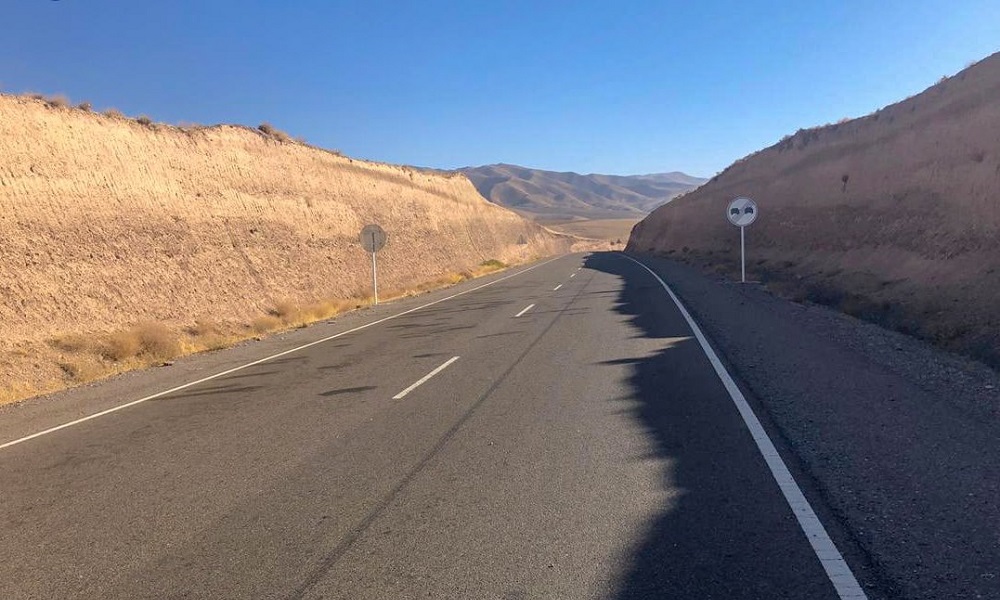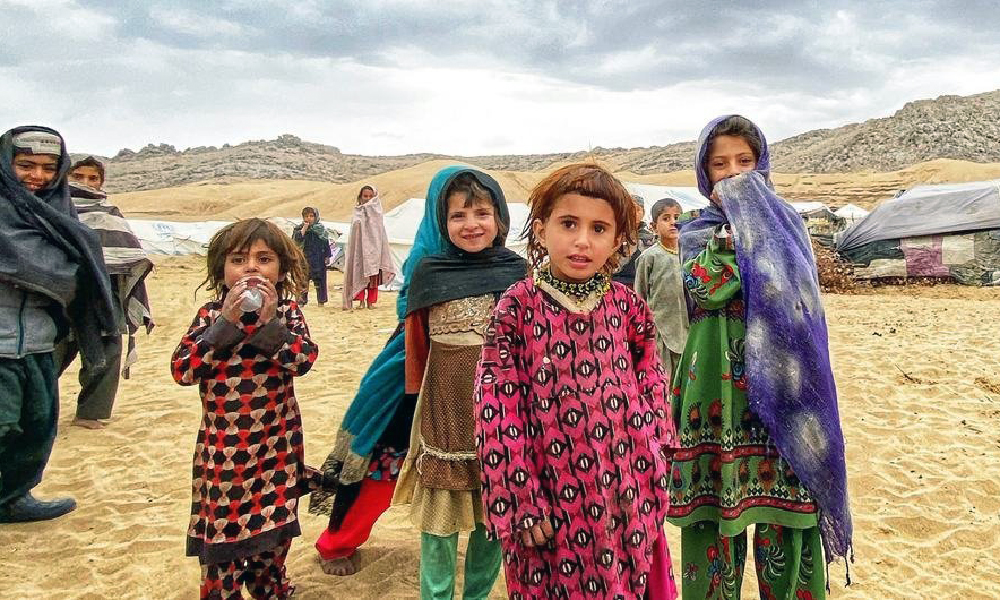Latest News
US adds terror group “Jamaat-ur-Ahrar” to list of terrorists

 The United States has added the Pakistani militant group Jamaat-ur-Ahrar to its list of global terrorists, triggering sanctions against a faction that has staged multiple attacks on civilians, religious minorities and soldiers, Reuters reported.
The United States has added the Pakistani militant group Jamaat-ur-Ahrar to its list of global terrorists, triggering sanctions against a faction that has staged multiple attacks on civilians, religious minorities and soldiers, Reuters reported.
Jamaat-ur-Ahrar has claimed responsibility for at least five major attacks in Pakistan since December, including the Easter Sunday bombing in a public park that killed 70 people in the city of Lahore.
According to Reuters, the group is a splinter faction of the Pakistani Taliban movement that has also declared loyalty to Islamic State’s leadership in the Middle East.
It also claimed responsibility for the killing of two Pakistani employees of the U.S. Consulate in the northwestern city of Peshawar in March.
Jamaat-ur-Ahrar has not commented on the designation that was announced by the U.S. State Department on Wednesday. It means anyone who supports Jamaat-ur-Ahrar could have their assets frozen by the U.S. government.
Pakistan welcomed the decision.
“Pakistan has long pleaded to take concrete action against the TTP and their like who operate in Afghanistan, and they have planned and launched a number of attacks in Pakistan while operating from there,” Foreign Office spokesman Nafees Zakaria told a briefing, referring to the Pakistani Taliban.
The Pakistani Taliban, allied with but separate from the Afghan Taliban, are fighting to topple the Islamabad government and install a strict interpretation of Islamic law.
Pakistan has over the years backed militants opposed to its old rival India and governments in Afghanistan seen as pro-Indian.
Pakistan says militants fighting it operate out of Afghanistan while Afghanistan says militants fighting it operate out of Pakistan.

Latest News
UN envoy meets Indian foreign minister to discuss Afghanistan

Roza Otunbayeva, the UN Secretary General’s Special Representative for Afghanistan, met with the Indian Foreign Minister Subrahmanyam Jaishankar in New Delhi and discussed issues related to Afghanistan, it was announced on Thursday.
During the meeting, Otunbayeva thanked India for “its critical humanitarian support and longstanding friendship for the Afghan people” and discussed the importance of regional and international cooperation to address prevailing challenges in Afghanistan, UNAMA said on X.
Jaishankar also said on X that the sides exchanged views on the current situation in Afghanistan.
“Underlined that India has provided wheat, medicines, pesticides and school supplies. Appreciate the role of UN agencies as partners in these endeavors,” he said.
Latest News
Traffic accident leaves one dead, four injured in Herat

Local officials in Herat say one person was killed and four others injured due to a traffic accident in Karukh district of the province.
The accident took place on Thursday night at 8:pm.
The injured individuals have been taken to Herat’s regional hospital by the personnel of Karukh district police headquarters, local officials said.
Latest News
250,000 Afghan children need homes, food, education after returning from Pakistan

In the wake of an announcement by Pakistan that it intends to start Phase Two of deportations of Afghans, Save the Children said Thursday that almost a quarter of a million Afghan children need proper homes, food, and access to education after returning from Pakistan in the past seven months.
In a statement issued by the organization, Save the Children said more than 520,000 Afghans have returned from Pakistan since September last year, after Pakistan said all undocumented foreigners must leave the country voluntarily or face deportation.
Nearly half of all the returnees are children.
A survey by Save the Children of families who have returned to Afghanistan – and the communities who are hosting them – found that nearly all (99%) do not have enough food for the next one to two months.
About three-quarters of returnees and families in host communities reduced portion sizes or restricted the food consumption of adults so small children could eat.
About 40% of returnees and host families surveyed had to borrow food or rely on friends and relatives for at least three days a week – with 13% of returnees and 9% of host families saying they had to get food from others every day.
Almost 8 million children in Afghanistan – or one in three – are facing crisis levels of hunger.
Nearly one in six families live in tents, according to the survey, with most returnees having little or no means to support themselves.
Only a third had managed to bring assets back with them from Pakistan.
Nearly half (47%) said there were no jobs available in Afghanistan, with 81% saying that they do not have any skills that could lead to employment.
Almost two thirds (65%) of children who have returned to Afghanistan have not been enrolled in school. The majority (85%) told Save the Children that they don’t have the necessary documents to register and enroll in school.
In Pakistan, more than two thirds of these children had been attending school.
Arshad Malik, Country Director for Save the Children in Afghanistan, said: “Families are returning to Afghanistan with virtually nothing. Most are relying on relatives or friends to support them – and these communities already have little to support themselves.
“The return of so many people is creating an additional strain on already overstretched resources. Children need support and stability. Many undocumented Afghan children were born in Pakistan – Afghanistan is not the place they call home,” he said.
He added that in addition to the returns from Pakistan, 600,000 Afghans arrived from Iran last year. Also, “families have been forced from their homes by multiple disasters, including the series of earthquakes in Herat and the ongoing drought. Afghanistan is also now home to the second largest number of internally displaced people in the world – or roughly 1 in 7 people,” Malik said.
According to him, Afghanistan not only needs urgent funding from international donors and governments – but also needs long term, community-based solutions to help all displaced Afghans rebuild their lives.
-

 Sport4 days ago
Sport4 days agoACL fever grows as fixtures finalized
-

 World4 days ago
World4 days agoUS will not take part in any Israeli retaliatory action against Iran
-

 Latest News4 days ago
Latest News4 days agoOver 50 people dead in traffic accidents over Eid
-

 Latest News4 days ago
Latest News4 days agoUS identifies Kabul airport suicide bomber
-

 Latest News4 days ago
Latest News4 days agoGood rains enable DABS to increase power production in Kabul
-

 Business4 days ago
Business4 days agoAfghanistan-Kazakhstan chamber of commerce opens in Herat
-

 World3 days ago
World3 days agoIsraeli military vows response to Iran attack as calls for restraint mount
-

 Latest News3 days ago
Latest News3 days agoPakistani police give Afghans in Balochistan one day to leave
















